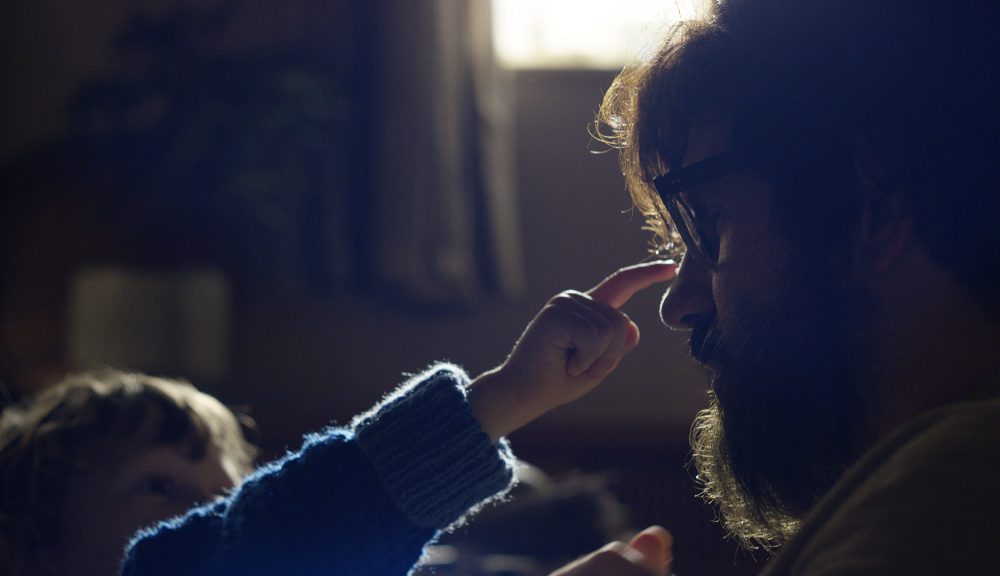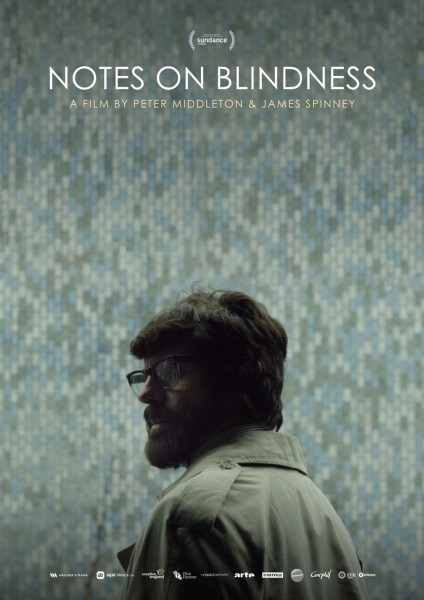Notes on Blindness

Notes On Blindness is by its nature quite ironic, and bittersweet, in that uses the visual medium of film to educate and show sighted audiences the mental and emotional journey of losing this omnipresent ability that we can’t help but take for granted. The feature is based on the audio recordings of Birmingham-based academic and theologian John Hull. Hull went fully blind in 1980 after the birth of his first son. He died in 2015 and left behind not only a body of philosophical work that has been lauded by his peers but also a loving family who feature prominently in his recorded musings on his condition, and by extension this film adaptation.
Like many films about disability, Notes on Blindness is both saddening and inspiring. It has a loose, shapeless feel, like many small-budget independent films of its ilk, which loyally matches the nature of Hull’s stream-of-consciousness account over decades of his life. Whatever plaudits the filmmakers deserve for their integrity, the effect also gives the film an unevenness, as gorgeous and moving sections co-exist with a certain clock-watching sensation; viewers begin to wonder why the film crawls so slowly to the 60-minute mark. Nonetheless, there are observations that are achingly raw, such as Hull’s feeling of impotence as a father on hearing his daughter crying, his realisation that he no longer remembers what his wife looks like or that he will never see his daughter’s striking brown eyes, or the moment where he reflects on how smiling for a blind person is essentially a solitary, self-conscious response rather than an organic one – you are only aware of the feeling of your cheeks tightening and nothing else.
Filmmakers James Spinney and Pete Middleton have done a particularly good job on the sound design; Hull’s voice recordings and various ambient noises are superbly integrated with the miming actors, Dan Renton Skinner (who plays Hull) and Simone Kirby as his wife, both of whom deserve credit for pulling off such an unusual assignment (only notably done before in the 2011 film The Arbor). However the duo’s visual sense is disappointingly ham-fisted in its literalism, and comes across as a homogenised and rather corporate approximation of arty aesthetics. The production indulges in retro-kitsch to an intrusive degree – everything is the colour of ochre, whilst the camera can’t get enough the quaintness of the video cassettes (we get it, they look like they have eyes!) or Skinner’s horn-rimmed spectacles and tweed look. There’s a particularly jarring dream sequence where a supermarket is flooded (with CGI water) and Hull is separated from his wife, which should have been moving, but instead feels like an indulgent homage to both The Shining and Shutter Island.
Notes On Blindess may suffer from clunky technique and slack pacing, which detract rather than enhance Hull’s source material at times, but overall it’s a solid and very respectable cinematic investigation into both a specific disability and the broader human condition.
Edward Till
Notes on Blindness is released in selected cinemas on 1st July 2016.
Watch the trailer for Notes on Blindness here:
























Facebook
Twitter
Instagram
YouTube
RSS